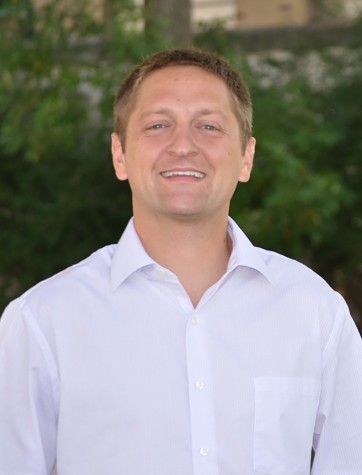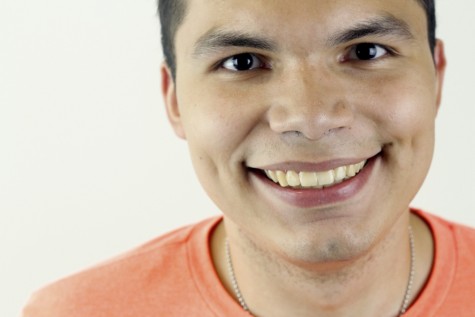Former officer writes book about motivating interviews
February 19, 2016
Police officers are taught in basic training about “verbal judo”, a way to deescalate different situations they may encounter when on their rounds. David Closson, the assistant director of Illinois Higher Education Center, was a former Eastern police officer that started use a new technique to help deescalate different situations called “motivational interviewing”. 
In 2015, Closson wrote a book titled “Motivational interviewing for campus police”, which talks about incorporating this kind of interviewing in campus police departments.
Closson said he remembers the moment when he first implemented his “motivational interviewing” skills when he received a call to Taylor Hall, it was the first step in what would eventually lead him to writing his book. Closson said Jessica Ward, the assistant director of student standards, was impressed at how he handled the situation with his skills.
“After using motivational interviewing on a call at Taylor Hall, Jessica pulled me aside and said she has never seen an officer take such an interest in a student and have a heartfelt conversation with them. She thought it was amazing,” Closson said. “That was when the light bulb went off in my mind; this needed to be a thing. I saw writing the book as the first step in sharing this with the country.”
Closson said the departments have been fairly receptive and supportive of the concept, although the biggest challenge is spreading the word to different department across the country.
“The book is a communication style designed to increase and strengthen a person’s own internal motivation to change their behavior,” Closson said. “I saw first hand the positive impact of police officers using motivational interviewing had for the students. It also led to a great sense of fulfillment for me, knowing and seeing that a conversation can make such a big difference in students’ lives.”
Closson presented his book and his finding at the NASPA Strategies Conference: Alcohol and Other Drugs in Orlando, Florida back in Jan., and will attend both the Missouri’s Meeting of the Minds Conference in April and the IACLEA Conference in June.
Closson said the biggest challenge he faced as a police officer was trying to overcome students’ misperceptions of police.
“They often expressed that we are ‘out to get them’ and just want to write a bunch of tickets’,” Closson said. “In all reality, we care about all of the students’ safety and well-being. We genuinely want to help.”
Closson was first introduced to this new technique of interviewing back in 2012 after co-teaching an alcohol prevention class. According to the press release, Heather Webb, the director of the office of student standards, was the one to originally encourage Closson to teach the class because she felt like Closson would be a natural at the interviewing style.
“Dr. Heather Webb first suggested I help co-teach some of the student standards classes. In order to do that, I went to two training workshops which covered motivation interviewing,” Closson said. “I then brought those skills on patrol with me to develop the method for the book.”
The important thing about motivational interviewing is that it is not an interrogation technique.
“Motivational interviewing is student centered and student driven. I don’t have a hidden agenda,” Closson said. “I simply talk to them about where they want to go in life, what motivates them, and support them in that they do have the power to make a change in their life.”
Jessica Ward and Heather Webb were unable to be reached for comment.
Luis Martinez can be reached at 581-2812 or [email protected]














































